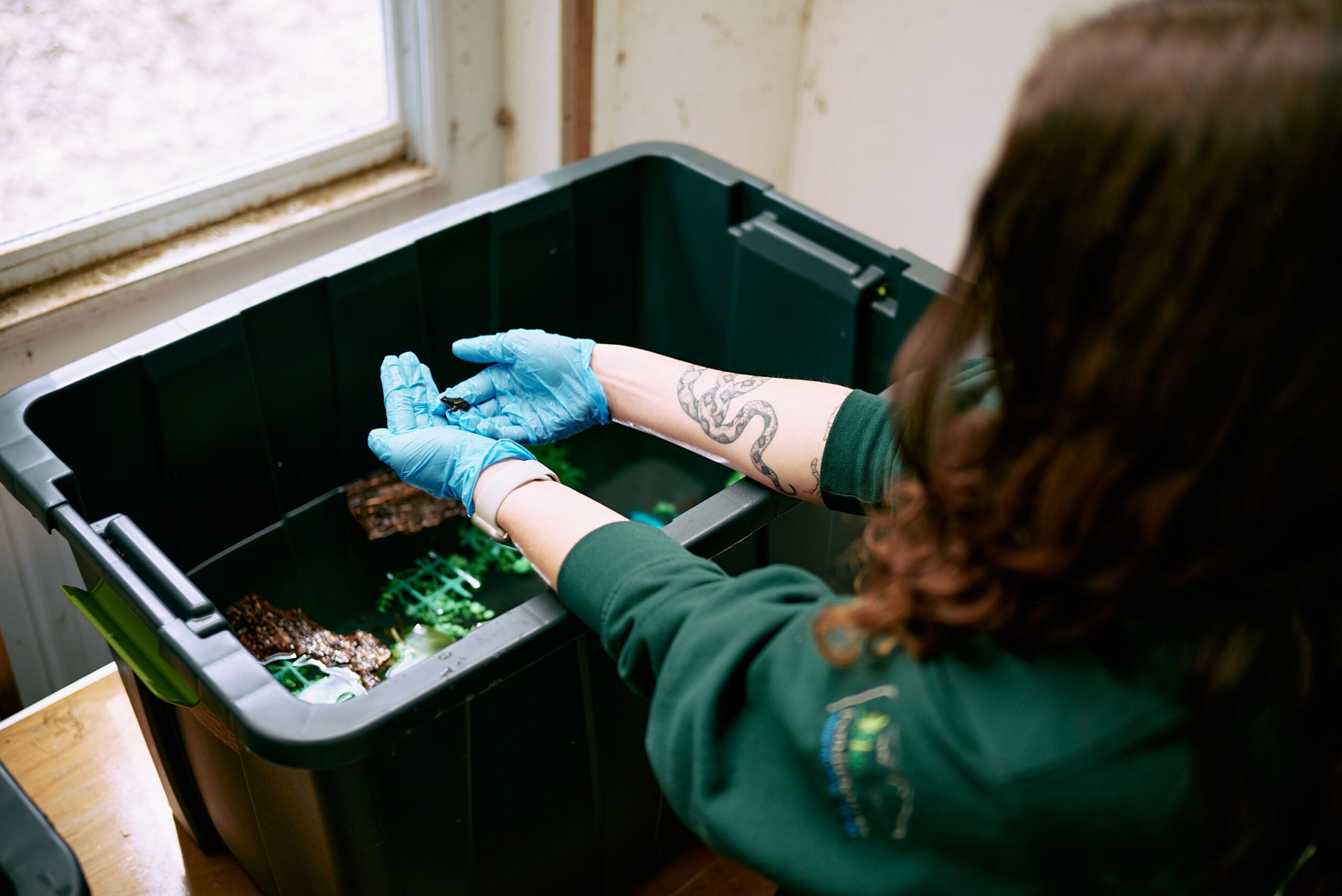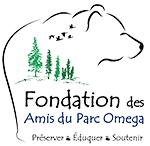
In 2025, thanks to the Foundation’s support, Parc Oméga began working with the Ministère de l’Environnement, de la Lutte contre les changements climatiques, de la Faune et des Parcs (MELCCFP) on a conservation project for the Western Chorus Frog, a species designated as threatened in Quebec and Canada.
The Western Chorus Frog(Pseudacris triseriata) is a tiny amphibian, barely 2.5 cm long, but with a huge ecological role to play. Its crystalline song heralds the arrival of spring and testifies to the health of wetland ecosystems. By feeding on insects and serving as prey for numerous species, it plays a key role in the food chain.
This small frog, once common in wetlands, is in alarming decline, mainly due to habitat loss and fragmentation, urbanization, pollution and climate change. Its population is now isolated in a few rare sites, making it particularly vulnerable to local extinction. As a species that is both fragile and essential to the balance of wetlands, it deserves special attention and concrete action to ensure its survival.
It is in this context that the partnership between Parc Oméga and the MELCCFP aims to support breeding efforts and strengthen natural populations. As part of the project, breeding adults are captured in the wild by the Ministry and temporarily entrusted to Parc Oméga. They stay there for a short period, in a controlled environment, to reproduce. Once the eggs have been laid, the adults are released back into their native habitat.
Our team then takes charge of the eggs laid on site and ensures their development. The eggs hatch, and the tadpoles are raised in the park until they have fully metamorphosed. During this period, we ensure their well-being through rigorous supervision, appropriate feeding and a safe environment. Once transformed into young tree frogs, they are released back into the wild, at sites targeted in collaboration with the Ministry.
This approach considerably increases the chances of survival of young individuals, at a time when predation, disease, drought and habitat degradation are particularly critical in the wild. By raising tadpoles to their juvenile stage, natural losses are greatly reduced, and local populations are concretely strengthened.
This first year of collaboration saw the release of over 350 young tree frogs, marking the beginning of a long-term commitment that we intend to pursue every year to actively contribute to the recovery of this endangered species.
Together, let’s protect this small, emblematic species: make a donation today!
